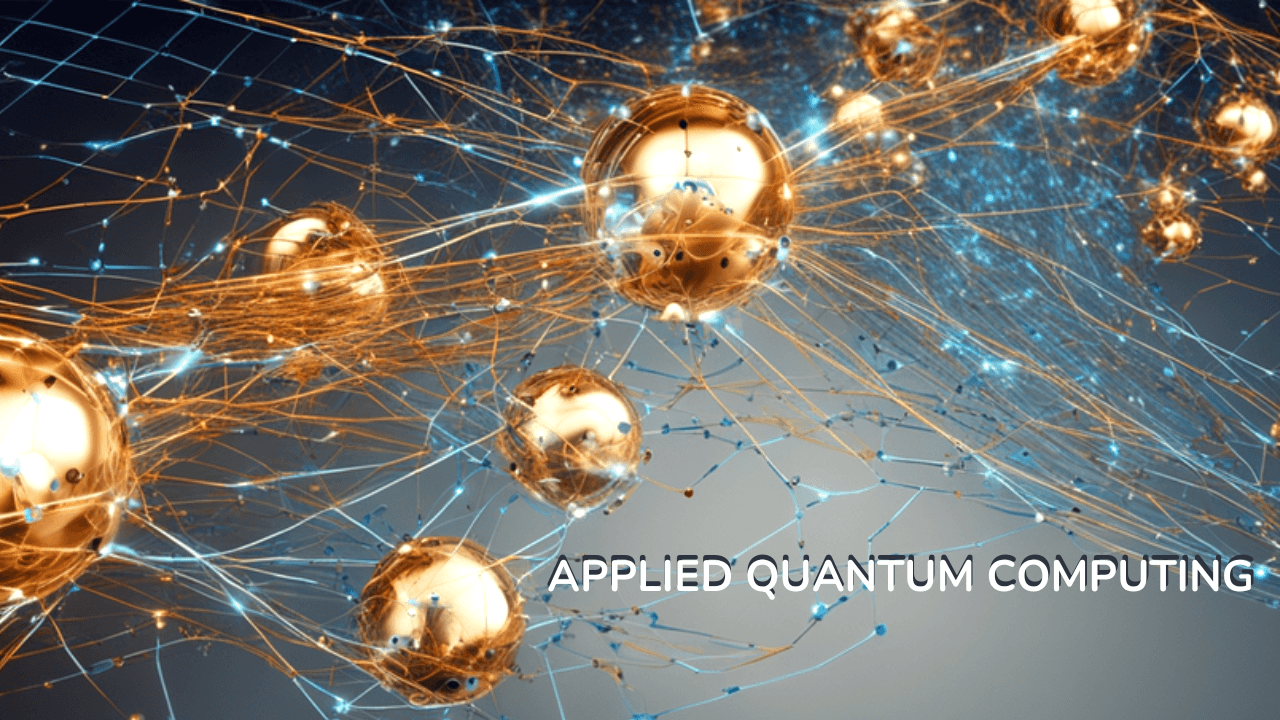
What is meant by applied quantum computing?
Unveiling the Power of Applied Quantum Computing
Introduction to Quantum Computing
Quantum computing uses the principles of quantum physics to perform calculations in a completely different way from classical computing. It uses quantum phenomena such as superposition, entanglement, and interference to manipulate qubits – quantum bits that can represent a quantum superposition of 0, 1, or both states.
Whereas in normal computer bits must be in either a 0 or a 1 state, qubits can simultaneously explore several possibilities. This enables quantum computers to solve some complex problems faster than classical computers by performing massively parallel calculations.
Read the full article on beginners' complete guide on Quantum Computing
Transition to Applied Quantum Computing
For decades, quantum computing existed purely in the realm of theoretical physics and computer science. But in recent years, rapid hardware advances have allowed quantum computing to cross over into practical implementation. Companies such as D-Wave, Rigetti and ionQ have developed actual quantum processing units. Milestones such as quantum supremacy prove that quantum devices can now beat supercomputers at some sample tasks. Although universal quantum computers do not yet exist, it marks the transition from abstract scientific research to practical quantum computing.
Definition of Applied Quantum Computing
Applied quantum computing refers specifically to the use of quantum computers or simulators to solve real-world problems with practical applications. Unlike theoretical work, the focus is not on proving quantum advantages or discovering exotic physics, but on developing useful quantum applications. This involves identifying relevant problems, formulating quantum algorithms, implementing them on quantum hardware, and providing concrete solutions or insights.
Some key characteristics of applied quantum computing include:
- Goal-oriented - Focused on solving specific issues or optimizing systems rather than general inquiry.
- Problem-centric - Involves reformulating industry challenges into computational problems addressable by quantum algorithms.
- Solution-driven - Aims to produce insights, predictions, optimizations, or discoveries that benefit an organization or field.
- Impact-focused - Seeks measurable improvements in efficiency, accuracy, time-to-solution, costs, and revenues over classical approaches.
- Implementation-based - Requires deploying algorithms on real quantum hardware or simulators to yield useful output.
This contrasts with some aspects of theoretical quantum computing research which involves:
- Demonstrating "quantum supremacy" without a specific problem context.
- Designing algorithms to probe the boundaries of quantum physics.
- Exploring exotic quantum phenomena and hypothetical compute models.
- Proving theoretical speedup advantages without running on actual hardware.
- Publishing scientific papers on quantum foundations, complexity theory, etc.
In summary, applied quantum computing is distinguished by its practical business and real-world engineering focus compared to pure scientific research aspects. The goal is operational solutions, not theoretical inquiry.
Real-world use cases
Some of the major practical use cases today include:
- Computational Chemistry - Quantum simulations already aid drug discovery by modeling molecular interactions.
- Supply Chain Optimization - Companies like D-Wave improve logistics through quantum optimization algorithms.
- Quantum Machine Learning - Pattern recognition in datasets using quantum neural network models shows promise.
- Quantum cryptography - Unhackable communication enabled through quantum key distribution protocols.
As hardware and algorithms advance, many more applied quantum solutions are emerging in areas such as finance, transportation, engineering, and climate modeling.
Challenges and Ideas
To make applied quantum computing possible on a large scale, both technical and commercial challenges must be addressed:
- Hardware errors need to be corrected using quantum error correction codes to get accurate output.
- For complex calculations, the finite qubit lifetime prior to decoherence must be improved.
- It is necessary to develop a full stack of software tools to support end-to-end application delivery.
- Real-world problems that require improvements in mathematical models are mappable to quantum algorithms.
Understanding the business value proposition behind quantum applications is critical to adoption.
Overall, continuing multidisciplinary collaboration is needed to realize the potential of quantum computing in practice.
key components
Applied quantum computing solutions require three key elements:
Hardware – Multiple qubit physical architectures exist, including superconducting, trapped ions, and photonics.
Software – Frameworks such as Qiskit and languages such as Q# are used to build and run quantum programs.
Algorithms - Quantum applications take advantage of algorithms such as Grover for optimization and Shor for factoring.
Progress in all three domains is important to enable practical practical systems.
Partnership and Research
Progress has depended heavily on collaboration between quantum startups, tech giants such as IBM and Google, academic institutions, and national laboratories. The joint R&D brings together all the necessary expertise from physics to computer science to engineering. Notable partnerships include the Chicago Quantum Exchange, the UC Berkeley-AWS Center for Quantum Computing, and the Quantum Economic Development Consortium.
Benefits and Potential Effects
By achieving exponential speeds over classical computing, applied quantum solutions can provide tremendous value across industries and global challenges:
- Discover powerful new drugs, materials, and chemical processes.
- Optimize systems to reduce waste and emissions in supply chains.
- Secure communication and transactions through unhackable cryptography.
- Analyze financial systems and assess risk faster than ever before.
- Advanced climate modeling and weather forecasting provide greater insight.
We are only scratching the surface of the important insights and solutions that quantum computers can unlock.
future directions
In the next 5–10 years, quantum computing applications are expected to grow exponentially as hardware scales up and software tools mature. Cloud-based quantum application services will expand access. Startups and tech giants will provide applied quantum solutions tailored to industries. With continued research and development, quantum computers will transform from noisy intermediate devices to full-fledged practical problem-solving devices.
The transition from theoretical quantum computing to real-world applications is an important milestone. While continued progress is needed, applied quantum computing promises to be highly transformative. As this technology moves from research labs into the commercial mainstream, it can catalyze discoveries across industry, science, and society. The quantum era of practical computing has only just begun.